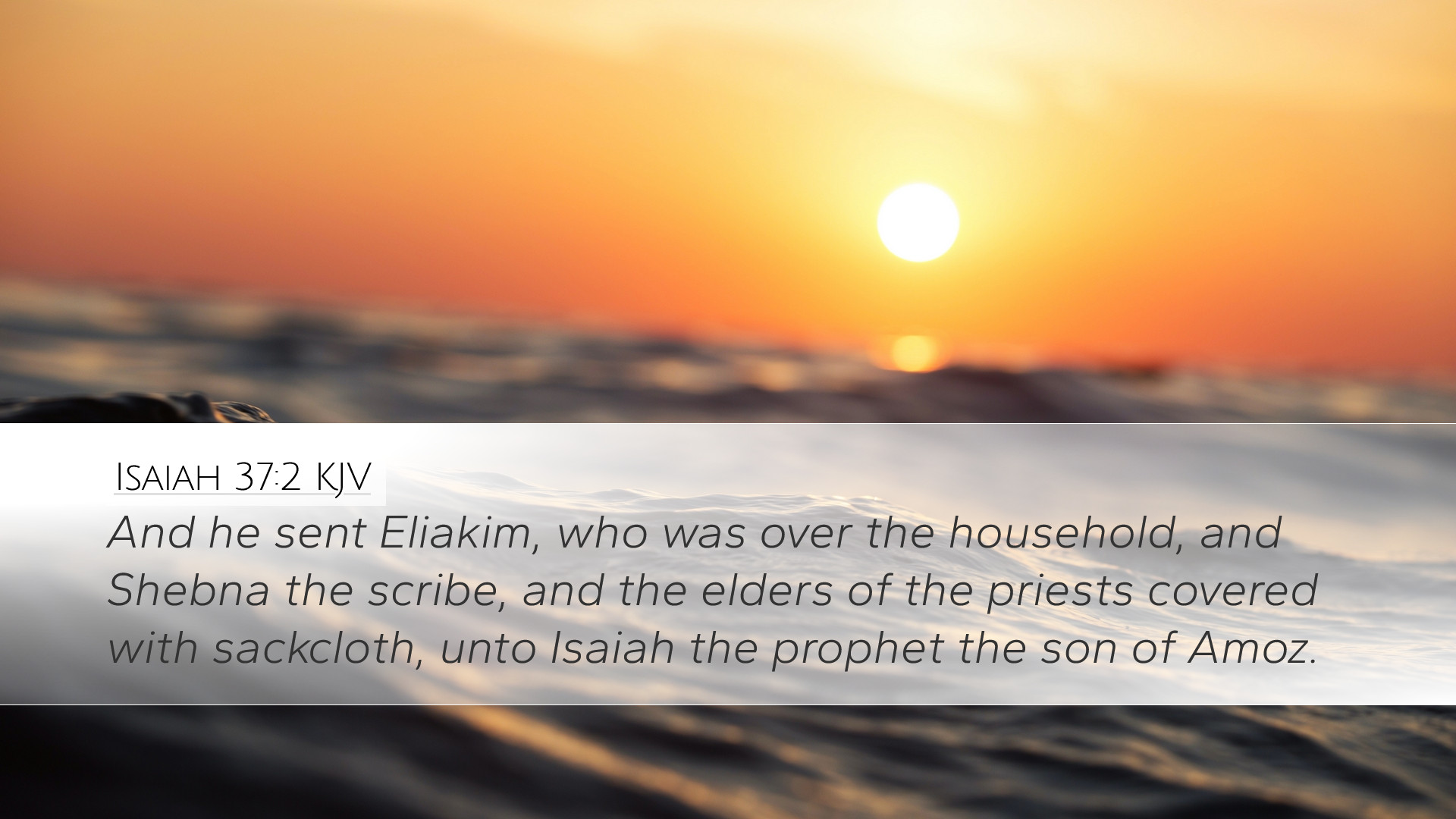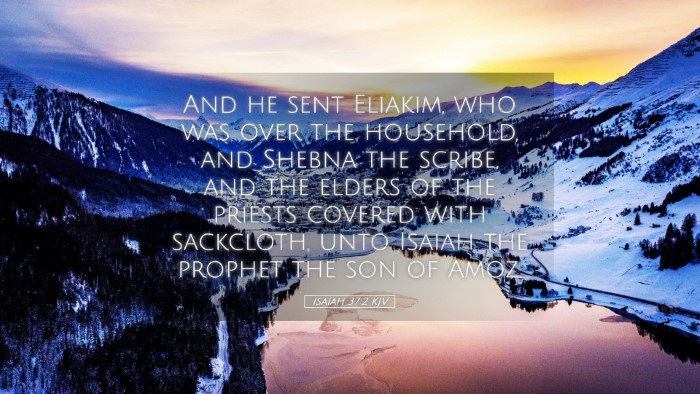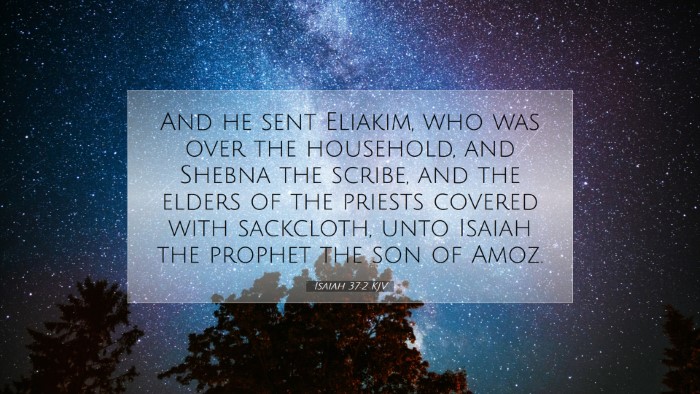Commentary on Isaiah 37:2
Verse: "And he sent Eliakim, who was over the household, and Shebna the scribe, and the elders of the priests, covered with sackcloth, unto Isaiah the prophet, the son of Amoz."
Introduction
The verse Isaiah 37:2 captures a pivotal moment in the narrative of King Hezekiah's reign over Judah. Faced with the imminent threat from Sennacherib, the king of Assyria, Hezekiah demonstrates humility and reliance on God by seeking the counsel of the prophet Isaiah. This response is notable not just for its theological implications but also for its practical applications in leadership and crisis management.
Contextual Framework
The historical context surrounding Isaiah 37 reveals a tumultuous period. The Assyrian Empire, under Sennacherib, had achieved significant military success and threatened the very existence of the smaller states surrounding it, including Israel and Judah. Hezekiah, the king of Judah, had attempted reforms to secure his kingdom, but the powerful Assyrian advance presented a dilemma that required divine intervention.
Hezekiah’s Leadership
Hezekiah stands out as a leader conscious of his limitations. Here, we see his immediate response to the crisis is to seek the prophet Isaiah, which indicates a reverence for God's authority and a recognition that the wisdom of man is insufficient against such overwhelming odds.
Crisis and Response
- Submission in Sackcloth: The envoys sent to Isaiah were dressed in sackcloth, a traditional sign of mourning and repentance. This act communicates Hezekiah's humility before God (Matthew Henry).
- The Role of Elders: The inclusion of elders and officials highlights a communal approach to seeking divine guidance, stressing the importance of collective prayer and reliance on God during adversity (Albert Barnes).
- Significance of the prophet: Isaiah is depicted not merely as a seer but as a vital link between God and His people, underscoring the significance of prophetic ministry in times of crisis (Adam Clarke).
Theological Insights
This verse enhances our understanding of several key theological themes:
1. Divine Sovereignty
Hezekiah's act of sending representatives to Isaiah demonstrates his acknowledgment of God's sovereignty over nations and circumstances. Despite the daunting odds against Judah, he believes in the possibility of divine intervention (Henry).
2. The Importance of Prophetic Guidance
In a time of impending disaster, seeking the counsel of a prophet exemplifies dependence on God and highlights the role of God’s messengers. It reflects a broader theme of the necessity of divine revelation for understanding and responding to life’s crises (Clarke).
3. The Act of Repentance
The act of wearing sackcloth symbolizes not just mourning but also repentance. It signifies a turning of the heart towards God, desiring His mercy rather than presuming upon His grace (Barnes).
Practical Applications for Today
This passage offers several applicable lessons for contemporary readers, particularly for those in spiritual leadership and in times of distress:
1. Humility in Leadership
Pastors and leaders are reminded of the importance of humility. In moments of crisis, relying on God through prayer and seeking godly counsel is essential for effective leadership.
2. Community and Collaboration
Hezekiah's approach involved gathering leaders and respected figures in seeking God's direction. This act illustrates the power of collective faith and prayer within the community of believers.
3. The Role of Prophetic Voices
In modern contexts, the call to listen to prophetic voices within the church remains relevant. Prophets of the modern age—preachers, theologians, and mentors—should be sought after during trials for their perspective and encouragement.
Conclusion
Isaiah 37:2 illuminates a vital moment where faith intersects with urgent necessity. Through Hezekiah’s actions, the text teaches timeless principles of leadership, humility, and reliance on God in difficult periods. The reminder of divine sovereignty and the necessity for prophetic voices in our lives continues to resonate in the hearts of believers today.


